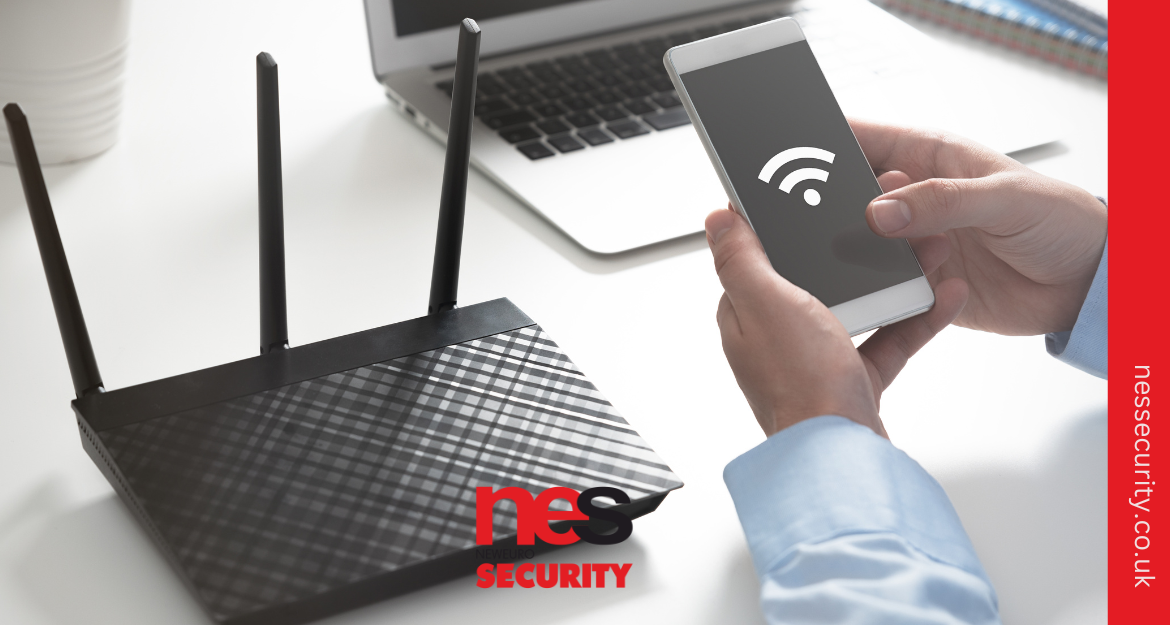In today’s digital age, a reliable and fast home network is essential for connecting devices, streaming media, and accessing the internet. When it comes to home networking, two popular options are Wi-Fi and Ethernet. While both have their advantages and disadvantages, understanding the pros and cons of each can help you make an informed decision. In this article, we will explore the benefits and limitations of Wi-Fi and Ethernet for home networking. We will compare their speed, reliability, security, ease of setup, cost, compatibility, and more. Join us as we navigate the world of home networking and discover which option is right for you.
The Pros and Cons of Wi-Fi for Home Networking
Wi-Fi has become synonymous with wireless connectivity, offering the freedom to connect devices without the need for physical cables. Here are the pros and cons of Wi-Fi for home networking:
Pros
Convenience: Wi-Fi allows you to connect multiple devices throughout your home without the limitations of physical cables.
Mobility: With Wi-Fi, you can move around freely while staying connected to the network.
Easy Setup: Setting up a Wi-Fi network is relatively straightforward, requiring a wireless router and compatible devices.
Cons:
Interference: Wi-Fi signals can be affected by physical barriers, distance, and interference from other electronic devices, potentially leading to slower speeds and reduced range.
Speed and Performance: While Wi-Fi technology has improved, wired Ethernet connections generally provide faster and more consistent speeds.
Security: Wi-Fi networks can be vulnerable to unauthorised access if not properly secured, potentially compromising the privacy of your data.
The Pros and Cons of Ethernet for Home Networking
Ethernet, on the other hand, offers a wired connection using Ethernet cables. Let’s explore the pros and cons of Ethernet for home networking:
Pros
Speed and Performance: Ethernet connections provide faster and more reliable speeds compared to Wi-Fi, making it ideal for bandwidth-intensive activities like gaming and streaming.
Stability: Ethernet offers a stable and consistent connection, unaffected by physical barriers or interference from other devices.
Security: Wired connections are generally considered more secure than Wi-Fi, as they are not susceptible to wireless eavesdropping or unauthorised access.
Cons:
Limited Mobility: Ethernet cables restrict mobility as devices need to be physically connected to the router or modem, limiting the flexibility to move around while using the internet.
Installation Challenges: Running Ethernet cables through walls or across different floors can be challenging, requiring additional effort and potentially professional installation. This can be especially inconvenient in already constructed buildings, where retrofitting Ethernet cables may involve more complex and time-consuming procedures.
Device Compatibility: Some devices, such as smartphones and tablets, may not have Ethernet ports, necessitating the use of adapters or additional networking equipment to establish a wired connection. This can add extra cost and complexity to the setup, particularly for users who primarily rely on wireless connectivity.
Future-Proof Planning: Although not a con of Ethernet itself, in existing buildings, incorporating Ethernet for home networking may require careful planning to ensure the infrastructure is future-proof. This includes considerations for potential technological advancements, such as higher network speeds or new connectivity standards, which may necessitate upgrades or modifications to the existing Ethernet setup.

Speed and Performance: Wi-Fi vs. Ethernet
When it comes to speed and performance, Ethernet connections have the edge over Wi-Fi. While Wi-Fi speeds have improved with advancements like Wi-Fi 6, Ethernet still provides a more consistent and reliable connection, especially for data-intensive tasks such as large file transfers or online gaming. Ethernet offers higher bandwidth and lower latency, ensuring a smoother and more responsive network experience.
Reliability and Stability: Wi-Fi vs. Ethernet
Reliability and stability are crucial factors in home networking. Ethernet connections are generally more reliable as they are not subject to signal interference from neighbouring networks or physical barriers. Wi-Fi, on the other hand, can experience signal degradation due to distance, walls, and interference from other electronic devices. However, with proper router placement and signal optimisation techniques, Wi-Fi reliability and stability can be improved.
Security Considerations: Wi-Fi vs. Ethernet
Security is a significant concern in home networking. Ethernet connections are inherently more secure than Wi-Fi since they require physical access to the network. However, Wi-Fi networks can be secured with encryption protocols like WPA2 or WPA3, strong passwords, and network segmentation. Employing these security measures is crucial to protect against unauthorised access and ensure the privacy of your data.
Ease of Setup and Convenience: Wi-Fi vs. Ethernet
Wi-Fi offers unparalleled convenience and ease of setup. With a wireless router, you can connect multiple devices wirelessly, eliminating the need for physical cables. Setting up a Wi-Fi network involves configuring the router and connecting devices to the network. Ethernet, on the other hand, requires running cables from the router to each device, which can be more complex and time-consuming, particularly for older homes without pre-installed Ethernet infrastructure.
Cost and Accessibility: Wi-Fi vs. Ethernet
In terms of cost, Wi-Fi has an advantage over Ethernet. Wi-Fi routers are readily available at affordable prices, and most devices come with built-in Wi-Fi capabilities. Ethernet, on the other hand, requires the purchase of Ethernet cables and potentially additional networking equipment. Additionally, installing Ethernet cables may involve additional costs for professional installation or the need to run cables through walls and ceilings.
Compatibility and Device Support: Wi-Fi vs. Ethernet
Wi-Fi enjoys widespread compatibility across a wide range of devices, including smartphones, tablets, laptops, and smart home devices. However, some devices, such as desktop computers and gaming consoles, may require Ethernet connections for optimal performance. Ethernet compatibility depends on the presence of Ethernet ports on devices. While most computers and gaming consoles have Ethernet ports, portable devices may require adapters for docking stations to connect to Ethernet.

Choosing the Right Solution: Wi-Fi, Ethernet, or a Combination
Choosing the right networking solution depends on your specific needs and preferences. If mobility and convenience are essential, Wi-Fi is the ideal choice. For applications that demand high speeds, low latency, and a reliable connection, Ethernet is recommended. Many households opt for a combination of both, using Wi-Fi for mobile devices and Ethernet for stationary devices that require maximum performance.
Future Trends in Home Networking: Wi-Fi and Ethernet
Both Wi-Fi and Ethernet continue to evolve to meet the demands of modern home networking. Wi-Fi technology is advancing with the introduction of Wi-Fi 6E, which offers higher speeds and lower latency. Ethernet is also improving, with higher bandwidth options like 10 Gigabit Ethernet becoming more accessible. Additionally, hybrid solutions that combine the best of Wi-Fi and Ethernet, such as wireless mesh networks, are gaining popularity.
FAQs
Is Wi-Fi faster than Ethernet?
Ethernet connections generally provide faster speeds and lower latency compared to Wi-Fi.
Can I use Wi-Fi and Ethernet together?
Yes, it is possible to use Wi-Fi and Ethernet together in a home network. You can connect devices wirelessly via Wi-Fi and use Ethernet for devices that require a wired connection.
Which is more secure, Wi-Fi or Ethernet?
Ethernet connections are generally considered more secure as they require physical access to the network. However, Wi-Fi networks can be secured with encryption protocols and strong passwords.
Partnering with Nes Security for Home Networking Solutions
Nes Security offers expert home networking solutions tailored to your specific needs. Our team of professionals can assess your requirements, recommend the appropriate networking technologies, and ensure a seamless installation and configuration process. By partnering with Nes Security, you can achieve a secure and reliable home network that meets your connectivity needs.


